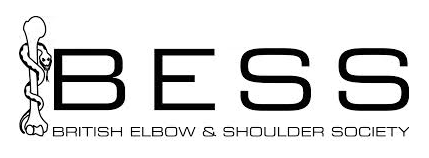Even though I have spoken at international conferences for over 20 years and even though I have spoken to audiences of over 1000 male orthopaedic surgeons, this time was different.
This time I had not rehearsed anything; I had not prepared anything. This time I spoke because I felt compelled to speak. And This time it was not about research or anything clinical; this time, I spoke because it was personal and boy, was I nervous.
To give you a bit of context, my name is Susan Alexander, and I am an orthopaedic shoulder surgeon. Orthopaedics in the UK is probably the last bastion of the white male amongst medical and surgical specialities. When I started my training, there were just a handful of female orthopaedic consultant surgeons in London, and they were all white. Today, after two decades, it has not changed much.
Last month, I attended the British Elbow and Shoulder Society (BESS) meeting in Liverpool.
The delegates are a combination of predominantly white and male surgeons and allied health professionals, such as physiotherapists, who are primarily but not exclusively female.
This year the BESS Council have appointed a new committee member to focus on EDI. Equality, Diversity and Inclusivity. The facts are that minorities are disproportionately underrepresented in orthopaedic surgery. Whilst there were around 20% of surgeons from an Asian background, there were only a handful of black surgeons. There are very few openly homosexual surgeons in orthopaedics. And regarding women, only 4.8% of female orthopaedic consultant surgeons in the UK.
There was an acknowledgement from BESS that these numbers were shockingly low, and action should be taken to start looking into why there is such a discrepancy in this speciality compared to other surgical and medical specialities.
I sat and listened to this presentation and my heart started hammering, there was so much I wanted to say, but I was worried whether sticking my head above the parapet would invite unwelcome criticism. The speaker stated that many women join the orthopaedic training programs, but very few complete the training and take up consultant positions. He also said that they need to understand why. The more I listened to how they did not understand why more women did not complete their training, the more I felt I had to speak up. So I did.
I got a little unsteadily from my seat and went over to the microphone. Before I opened my mouth, my throat started to close up, and my head suddenly felt hot and light-headed. I thought, ‘this is not the time to choke it; keep going. As I started to speak, my voice went croaky and higher in pitch, it did not sound like my own voice, but I knew I had to keep going.
I can not remember exactly what I said word for word, but this is the essence of what I said.
“My name is Susan Alexander, I am proud to be a British woman, and I am of Indian origin. I am delighted that BESS has taken the initiative to look at why minorities do not choose a career in orthopaedic surgery. But if you want to understand why it is straightforward.
All human behaviour is driven by two things; 1. The pursuit of pleasure, and 2. The avoidance of pain. The stronger factor of the two is avoiding pain.
When you join a community of any description, you want to feel two things. You want to think that you belong, and you want to feel that you matter. When I first presented at BESS 20 years ago, I did not feel that welcome. It was a different time, with different people and different attitudes, but the shared experience of any minority is that they do not feel welcome.”
By now, my voice was starting to shake, and I was so annoyed with myself as I did not want to come across as scared or vulnerable; I wanted to sound confident.
I just had to keep going.
“My father worked as a doctor for decades in the NHS and experienced discrimination on many levels, so I have seen and experienced it from different angles.
Why would anyone want to stay in an organisation when you don’t feel welcome? Why would anyone stand up in this forum and willingly and openly declare that they are gay? You would have to be incredibly self-confident to do so.
In my personal experience, I had to be incredibly thick-skinned to do orthopaedics because I did not feel welcome.
And you may wonder – is this really important? Why should we encourage women into orthopaedics? The answer is yes and let me explain. Yesterday we had a whole session with papers on the frozen shoulder, but not a single person mentioned the word menopause. This is one of the most common groups of patients affected by frozen shoulder. Furthermore, 50% of the patients you treat will be women, so understanding the female perspective will make you more empathic and ultimately more kind as surgeons. Surely that is something we should all be striving towards?’
By now, I was beginning to worry that I had said too much and was going to lose the impact of what I was saying, so I thought I had better wrap up quickly, but I did not want to just fizzle out, I needed a strong ending, and then in a moment of inspiration the words came to me. It was a risk; I really wasn’t sure I should say this in an auditorium of over 700 delegates, but what the heck?
I had come this far, so I ploughed on.
“So once again, I applaud this initiative by BESS, and I hope it is done sincerely and done well. And before I finish, I just wanted to point out that the irony of it all is that every one of us in this room does have one thing in common.”
And now I had their attention.
“and I mean, everyone in this room has this one thing in common.”
I paused again – should I say it? Too late, here goes.
“and that is that one way or another, we all started life in a vagina.”
I couldn’t believe I had just said that.
Fortunately, most people laughed, but my legs turned to jelly as I walked back to my seat.
I was greeted with a high-five by the founding member of BESS, whom I happened to be sitting next to at the time, and he said, ‘Well done, that was brave.’
As I sat in my chair, my heart rate slowly returned to normal. I wondered how this would have come across, but I had to wait until the end of the session.
The reaction I got was incredibly comforting and a relief.
The first lady who spoke to me was a physiotherapist, and she shook my hand and said, “I just wanted to say well done; I love that you said the word vagina in this room and thank you for highlighting the menopause.”
Many male surgeons were also kind enough to say that they recognise this issue and are actively encouraging minority groups to apply for orthopaedic rotations.
What did surprise me, however, was that more than one white male surgeon came up to me later that evening and said, “actually, I sometimes don’t feel terribly welcome at these meetings, and I don’t feel like I belong”.
It took me a long time to decide whether or not I should write this blog as, once again, I am anxious if this will trigger criticism or resentment from people. So I want to be clear about my intentions. I am not writing this because I have a war to wage against white men – far from it, I thoroughly enjoy their company and love the banter, which, maybe unconsciously, is one of the reasons I wanted to join the speciality. Also, I do not think everyone is against women entering the profession.
Nowadays, I would guess only a tiny minority would vehemently oppose the idea. Nor do I believe discrimination is the sole propriety of the white man. Every society in every part of the world has some bias toward discrimination, be it in colour, gender, race, religion, or even for supporting a football team.
I am not arrogant enough to think I have the answers to solve it. I do know that it will take effort from both sides. Also, I do not believe that blame is helpful.
I wanted to write this article for medical students and junior doctors from a minority to know that times are changing. Orthopaedic surgery is a great career.
If you are interested, do not let your perception of how you may be labelled by society stop you from applying. Diversity in the profession is a good thing, and there is recognition from senior surgeons that we want you. Actually, more than that, we need you. So this is your time and your opportunity, so come and grab it.
If you are asking yourself, do I need shoulder surgery? Get in touch today. We are here to answer any questions that you have.
Ms Susan Alexander is a Consultant Orthopaedic Surgeon and President of the Independent Doctors Federation.
She specialises in all shoulder conditions, including frozen shoulder, rotator cuff tears, dislocations and arthritis. Based in London, she practises at Fortius Clinic and King Edward VII’s Hospital. Ms Alexander is highly experienced in minimally invasive (keyhole) shoulder surgery and is known for her meticulous, patient-centred and holistic approach.
She focuses on accurate diagnosis, bespoke treatment planning, and ongoing support throughout recovery. Learn more about Ms Susan Alexander here.










